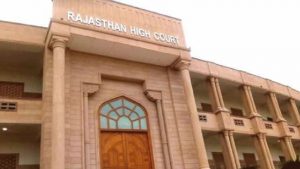 The Rajasthan High Court in the case of Shree K R Engineering Works v. Union of India vide D.B. CIVIL WRIT PETITION NO. 11245 OF 2020 (O & M) dated 10.05.2024, emphasized that procedural or technical errors should not obstruct the realization of substantive rights. The benefit that the petitioner is substantively entitled to should not be denied due to procedural technicalities. The High Court allowed the petitioner to manually furnish refund applications for the differential amount, where the initial lower claim was due to an inadvertent arithmetical error by the petitioner. This judgment sets a precedent for cases where technical or procedural glitches in the GST system prevent the rightful realization of refunds.
The Rajasthan High Court in the case of Shree K R Engineering Works v. Union of India vide D.B. CIVIL WRIT PETITION NO. 11245 OF 2020 (O & M) dated 10.05.2024, emphasized that procedural or technical errors should not obstruct the realization of substantive rights. The benefit that the petitioner is substantively entitled to should not be denied due to procedural technicalities. The High Court allowed the petitioner to manually furnish refund applications for the differential amount, where the initial lower claim was due to an inadvertent arithmetical error by the petitioner. This judgment sets a precedent for cases where technical or procedural glitches in the GST system prevent the rightful realization of refunds.
Facts of the Case: In this case, the Petitioner is involved in the manufacture and export of goods. The petitioner filed a refund application under the accumulated Input Tax Credit (ITC) category. An arithmetical error was realized after submission, prompting the petitioner to file another refund application for the differential amount under the category ‘Any Other’. However, the GST portal did not allow supplementary applications under the same initial category. The authorities denied the refund claim, stating that the category ‘Any Other’ was not applicable for such supplementary claims.
The petitioner sought to file refund claims under the “Any Other” category on the GST portal due to a computational error or alternatively, to file a physical refund application.
The Petition cited similar issue decided by the Gujarat High Court in Shree Renuka Sugars Ltd. v. State of Gujarat decided on 13.07.2023, wherein the petitioner sought a refund for unutilized Input Tax Credit (ITC) for zero-rated supplies over 11 months. Due to an arithmetical error, they claimed a lower amount than entitled and later filed a supplementary claim for the difference. The Court therein acknowledged the error as a technical one, emphasizing that the petitioner’s claim should not be rejected purely based on this technicality.
Further, the Supreme Court in the case of VKC Footsteps India Pvt. Ltd, held that refund entitlements are statutory and must align with legislative provisions. Courts cannot extend the scope of refunds beyond what is legislatively prescribed.
Held that:- The court accepted that the issues in the present case are similar to those in the cited Gujarat High Court judgment. The petitioner was legally entitled to the refund of the correct amount. The initial lower claim was due to an inadvertent arithmetical error by the petitioner’s employee.
Further, it was held that the refund claim should not be rejected solely based on the category under which the supplementary application was filed. The revenue authorities are allowed to scrutinize the refund claim in accordance with the law and take an appropriate decision.
The petitioner is permitted to manually furnish refund applications for the left-out refund amount. This directive was necessary due to the technical limitations of the GST portal that did not accommodate the filing of supplementary claims under the same category. The revenue authorities were directed to scrutinize the refund claims according to law and make an appropriate decision within a stipulated period.
The judgment underscores a judicial trend that emphasizes substance over form. Technical or procedural errors, especially those arising from system glitches or human error, should not prevent the realization of substantive rights. Taxpayers facing similar issues can draw upon this judgment to seek relief for procedural errors. It sets a precedent for allowing manual submissions when the electronic system fails.
To read the complete judgment 2024 Taxo.online 1074


